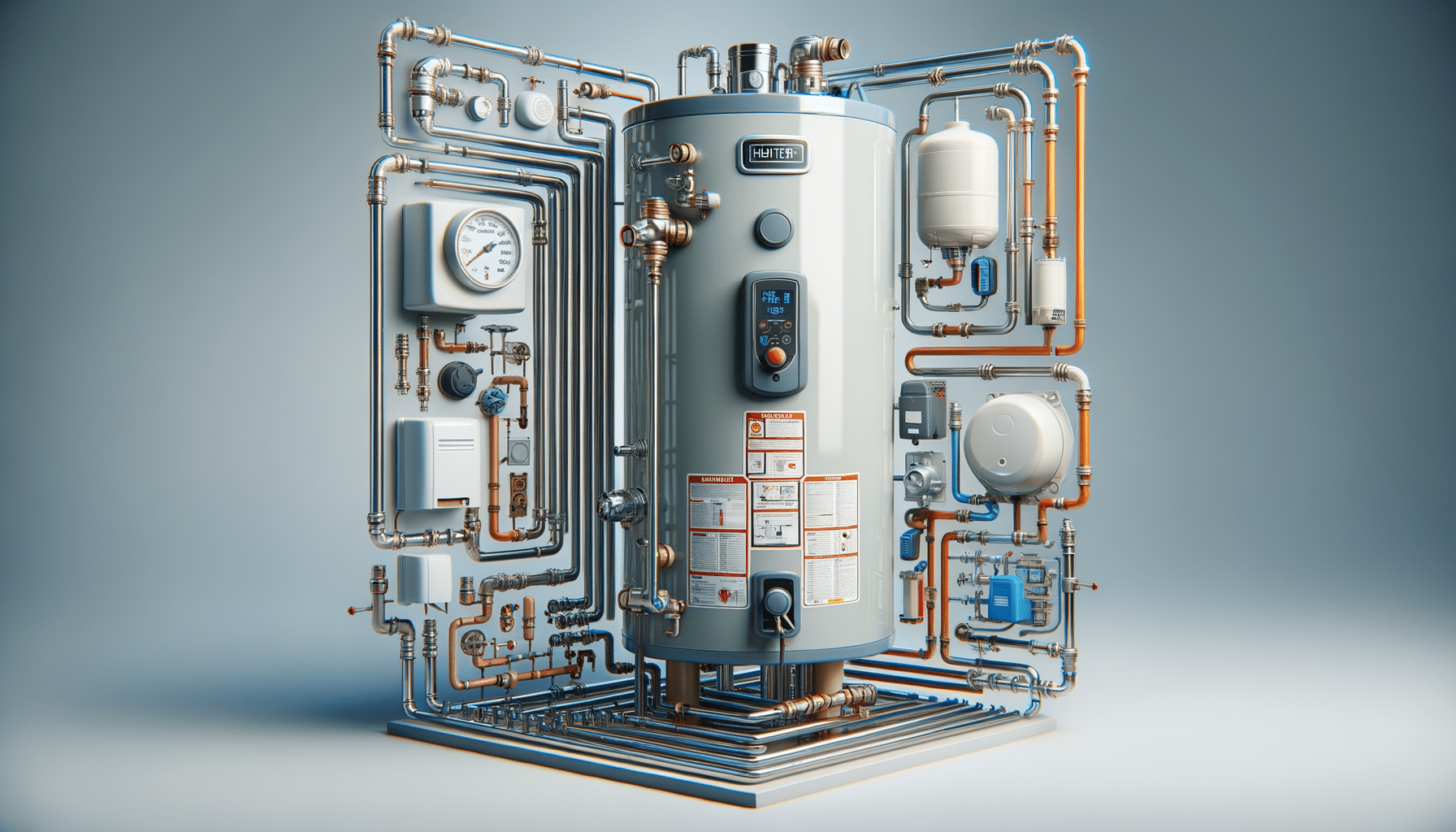Understanding Water Heaters: A Comprehensive Guide
Explore the various types of water heaters, their benefits, and maintenance tips to ensure efficient home water heating.

Introduction to Water Heaters
Water heaters are essential household appliances that provide hot water for various domestic needs, including bathing, cooking, and cleaning. Understanding the different types of water heaters and their functionalities can help homeowners make informed decisions about the most suitable options for their needs. This article delves into the intricacies of water heaters, exploring types, benefits, and maintenance tips to ensure efficient and reliable water heating in homes.
Types of Water Heaters
Water heaters come in several types, each with distinct features that cater to different needs and preferences. The most common types include:
- Conventional Storage Water Heaters: These are the most traditional form, using an insulated tank to store hot water until needed. They are available in various sizes to accommodate different household demands.
- Tankless Water Heaters: Also known as on-demand water heaters, these units heat water directly without storing it. They are known for their energy efficiency, as they only heat water when required.
- Heat Pump Water Heaters: These units use electricity to move heat from one place to another instead of generating heat directly for providing hot water. They are highly energy-efficient and suitable for climates with moderate temperatures.
- Solar Water Heaters: Utilizing solar panels, these heaters use the sun’s energy to heat water, making them a sustainable choice for environmentally conscious homeowners.
- Condensing Water Heaters: These are designed for homes that use natural gas as a primary energy source. They capture the heat from exhaust gases to heat the water, enhancing efficiency.
Choosing the right type of water heater depends on factors such as household size, energy source availability, and budget considerations.
Benefits of Different Water Heaters
Each type of water heater offers unique benefits that can cater to specific household needs. Here’s a closer look at the advantages:
- Conventional Storage Water Heaters: They are generally more affordable upfront and provide a reliable supply of hot water. Their straightforward design makes them easy to install and maintain.
- Tankless Water Heaters: These heaters offer significant energy savings due to their on-demand nature. They are compact, saving space, and provide a continuous supply of hot water.
- Heat Pump Water Heaters: With their energy-efficient operation, they can save homeowners money on electricity bills. They are particularly effective in climates that do not experience extreme temperatures.
- Solar Water Heaters: These systems are environmentally friendly and can significantly reduce energy costs in sunny regions. They are an excellent choice for those looking to reduce their carbon footprint.
- Condensing Water Heaters: They are highly efficient, especially in homes that use natural gas, and can reduce energy consumption and costs.
The choice of water heater can impact energy efficiency and operational costs, making it essential to consider the long-term benefits of each type.
Maintenance Tips for Water Heaters
Proper maintenance of water heaters is crucial to ensure longevity and efficiency. Here are some tips to keep your water heater in optimal condition:
- Regular Inspection: Check for any leaks, rust, or corrosion around the tank and pipes. Early detection of issues can prevent costly repairs.
- Flushing the Tank: Sediment buildup can affect efficiency. Flushing the tank annually can remove sediment and improve performance.
- Checking the Pressure Relief Valve: Ensure the pressure relief valve is functioning correctly to prevent pressure buildup, which can lead to tank damage.
- Insulating the Tank: Insulating the tank and pipes can help retain heat, improving efficiency and reducing energy costs.
- Professional Maintenance: Schedule regular maintenance checks with a professional to ensure all components are functioning correctly and to address any potential issues.
By following these maintenance tips, homeowners can extend the lifespan of their water heaters and maintain efficient operation.
Conclusion: Choosing the Right Water Heater
Selecting the right water heater involves considering various factors such as energy efficiency, cost, and household needs. By understanding the different types of water heaters and their benefits, homeowners can make informed decisions that align with their priorities and environmental considerations. Regular maintenance further ensures that water heaters operate efficiently, providing reliable hot water for years to come. Whether opting for a traditional storage water heater or exploring renewable options like solar, the right choice can lead to significant savings and environmental benefits.